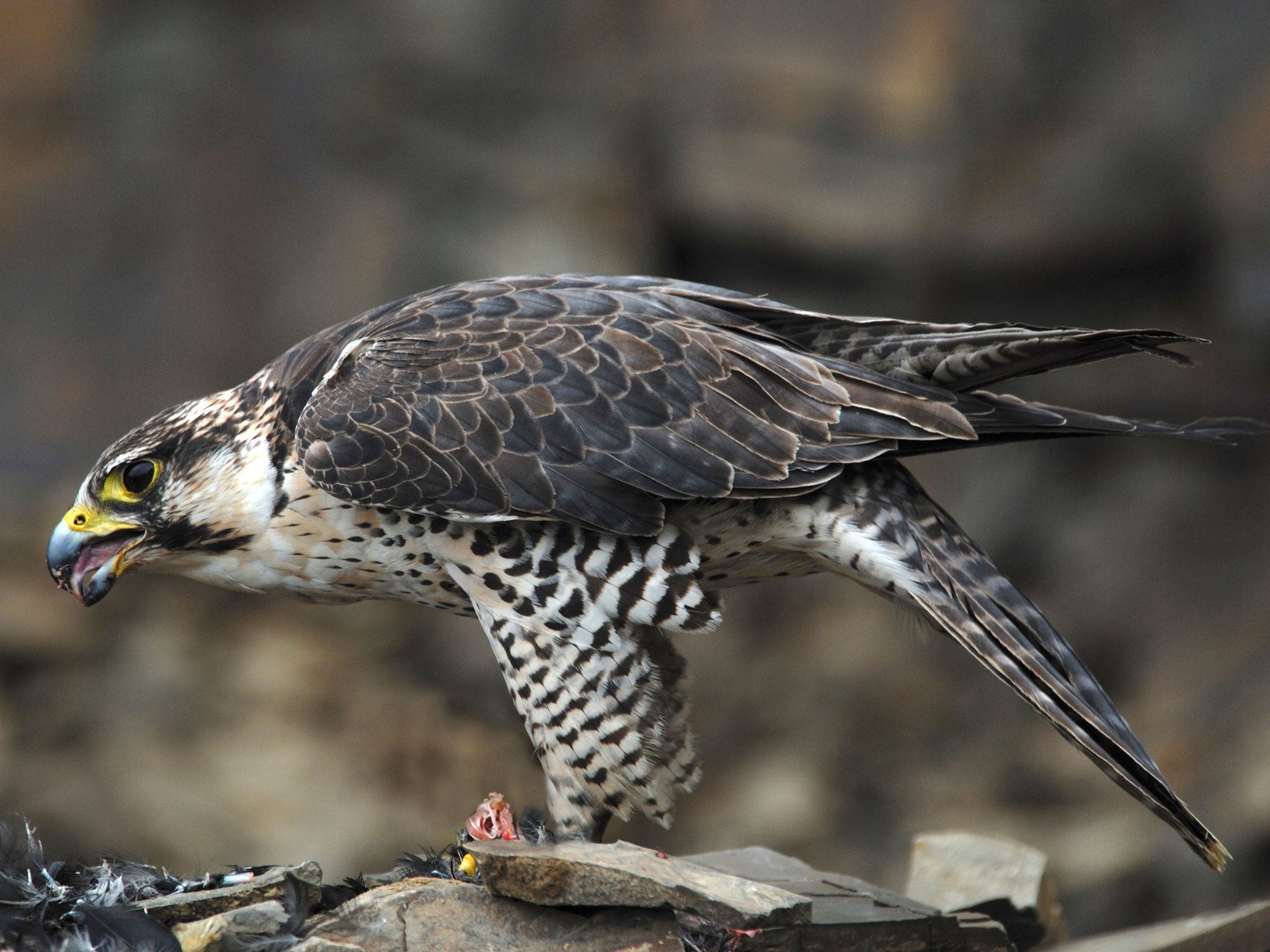Wildlife crime unit faces extinction over funding crisis
Concern about future of crucial work preventing smuggling and cruelty against animals

Britain's National Wildlife Crime Unit (NWCU), which leads the fight against the burgeoning illegal wildlife trade, may be facing the axe.
Concern is growing about the future of the widely praised unit, as the Home Office is refusing to agree its funding, which runs out on 31 March.
There are fears it may fall foul of the massive 20 per cent cuts in police budgets which are being implemented by the Home Secretary, Theresa May.
More than 100 MPs have signed an early day motion calling on the Government to secure the future of the unit, whose work, in combating everything from rhino-horn theft and illegal trade in reptiles to persecution of birds of prey, was recently warmly complemented by the all-party House of Commons Environment Audit Committee.
The concern is heightened by the fact that wildlife crime of all types is rapidly growing across the world, with elephant and rhino poaching both hitting new highs in 2012; organised crime is increasingly involved.
However, the relatively minuscule amount of funding for the 10-person unit – £136,000 annually from the Home Office and the Department for Environment, Food and Rural Affairs (Defra) – has not yet been signed off, even though the current money to enable it to exist runs out on 31 March.
Defra has agreed its own share of the funding, but the Home Office has not, and Defra ministers have held direct talks with Ms May about it. But yesterday her department conspicuously declined to give a guarantee that it would actually be forthcoming. A Home Office spokesman would only say: "Decisions on specific government funding for the National Wildlife Crime Unit beyond 2012-2013 will be taken by ministers before the end of the financial year."
The NWCU is a strategic police unit, based in Livingston in Scotland, which collates intelligence and enforcement activity about wildlife crime across all British police forces. Recently it has run major operations concerning badger-baiting, the smuggling of reptiles and amphibians, and the persecution of raptors: no fewer than 633 birds of prey, from golden eagles to buzzards, were illegally poisoned between 2002 and 2011.
It is also involved in the British end of the illegal trade in rhino horn, which now has a black market value in Asia as high as gold. In the last two years there have been eight thefts and one attempted theft of rhino horns from British museums. The threat to the unit is being taken very seriously.
The Green MP Caroline Lucas said yesterday: "With wildlife crime on the increase, the refusal of ministers – particularly those at the Home Office – to recognise the severity of the problem and safeguard the NWCU is completely unforgivable."
Labour's Shadow Environment Secretary, Mary Creagh, said last night: "The Government must not go soft on tackling wildlife crime now. This is a unit which punches above its weight and does hugely valuable work, and its funding needs to be preserved and settled as a matter of urgency to give its officers the security they need to plan their future activities."
Grahame Madge, RSPB spokesman, said: "With the future of some birds of prey hanging in the balance, it's imperative that the National Wildlife Crime Unit itself has a secure future."
Operations: whatthe NWCU does
Badger cruelty: Operation Meles
An ongoing operation which brings together all the agencies concerned with badger-baiting with dogs, by gathering intelligence and taking direct operational action. It has resulted in a number of significant arrests and prosecutions in Scotland, the North of England, the North Midlands, and Wales.
Illegal bird trade: Operation Cage
An attempt to stem the illegal bird trade, especially in birds of prey such as peregrine falcons, which can be taken from the wild and sold for enormous sums for falconry, especially in the Middle East. Raids and inspections have resulted in a number of prosecutions.
Smuggling reptiles and amphibians: Operation Ramp
A global operation to try to curb the illegal trade in reptiles and amphibians as pets, which is threatening populations of number of species in the wild. The NWCU coordinated more than 500 inspections and enforcement actions across Britain, discovering illegal trade in animals such as Hermann's tortoise.
Raptor persecution
A high-profile task for the NWCU as illegal poisoning of birds of prey, especially on grouse moors, continues in Britain and has driven the hen harrier, for example, to the brink of extinction in England. The NWCU is bringing shooting interests and the conservation agencies together to address the problem.
Rhino horn
The NWCU is grappling with the European end of the explosion in rhino poaching in southern Africa, which has gone from 13 rhinos killed in 2007 to more than 600 this year. The horn now has such a value in Asia that museum specimens are being targeted across Europe: in the last two years there have been 67 horn thefts in Europe, eight of them in Britain.
Michael McCarthy
Subscribe to Independent Premium to bookmark this article
Want to bookmark your favourite articles and stories to read or reference later? Start your Independent Premium subscription today.
